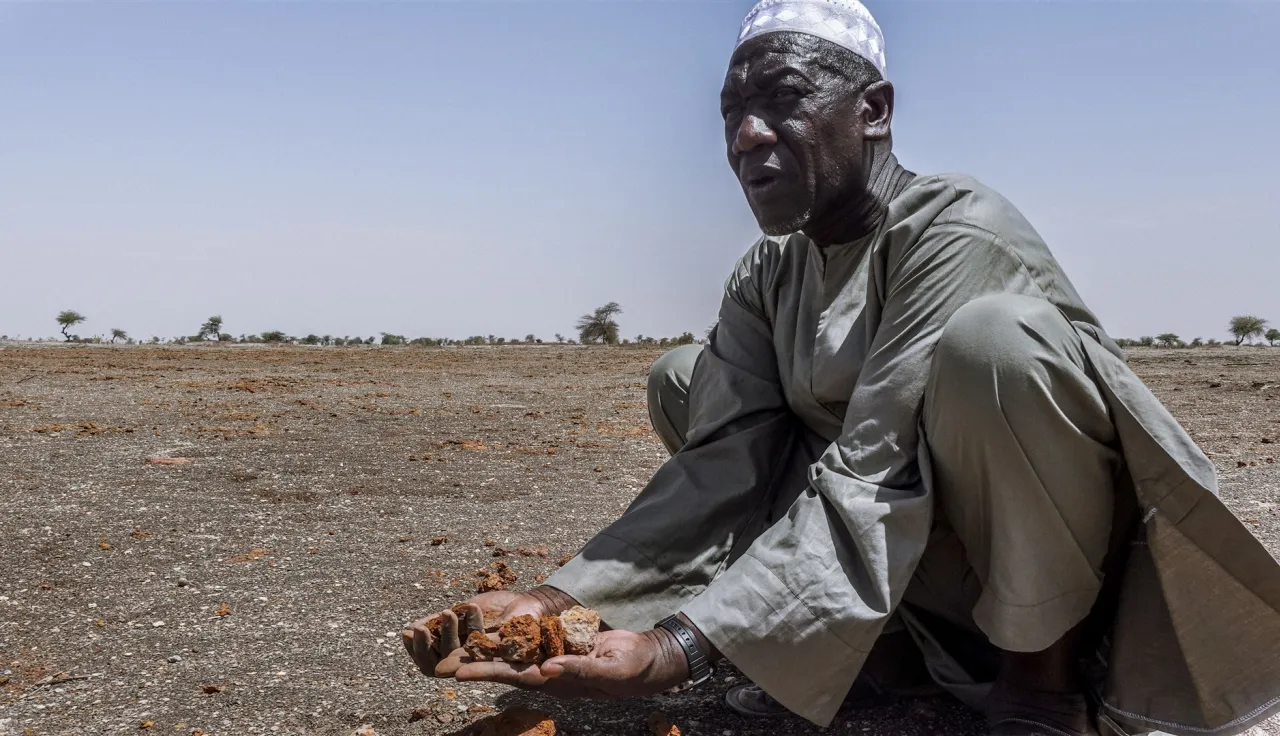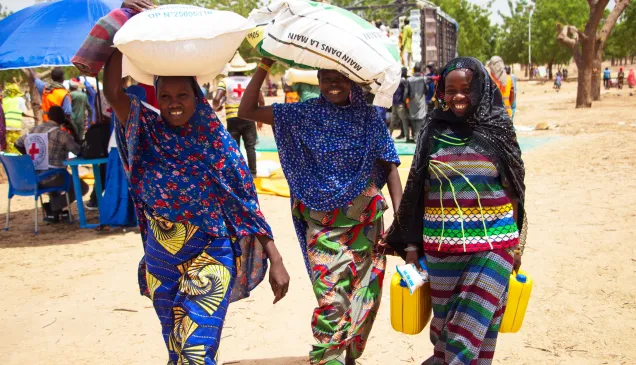COP30: The ICRC's call to strengthen climate action and finance in conflict settings

Climate change is an existential threat to humanity. Warming of the atmosphere, oceans and land – driven by human activity – is causing climate variations and extremes throughout the world. More than three billion people live in places that are highly vulnerable to climate change (IPCC, 2023). Action taken to date by the international community has been insufficient to prevent or reverse these trends.
The negative effects of climate change are being felt in some of the most extreme ways by people living in places affected by armed conflict and other situations of violence, who are ill-equipped and lack adequate support to cope with and adapt to a changing climate. Conflict erodes the adaptive capacity of countries, making them particularly vulnerable to climate shocks. Converging climate risks and conflict weaken institutional capacity, limit access to essential services and exacerbate food, economic and water insecurity (ICRC, 2020 and 2023).
The international community has increasingly recognized the importance of strengthening climate action and finance in conflict and fragile settings, including through key commitments in, for example, the COP28 Declaration on Climate, Relief, Recovery and Peace. These commitments must urgently
translate into practical action: strong climate action in places affected by armed conflict – accompanied by adequate funding – are needed to address humanitarian needs, preserve development gains and avoid systemic breakdowns and long-term fragility.
At COP30, the International Committee of the Red Cross (ICRC) urges parties to the United Nations Framework Convention on Climate Change (UNFCCC) and the governing bodies of the Conference of Parties (COP) to make three commitments to ensure that people enduring armed conflict are not left behind:
1. Recommit to urgent and ambitious political action to reduce emissions and keep warming within a habitable range to avoid the worst consequences of climate change for people and communities.
Negotiations on limiting the worst consequences of climate change have been ongoing for decades. In 2015, the signatories of the Paris Agreement agreed to limit global warming to “well below” 2 degrees Celsius above pre-industrial levels, and to aim for a maximum increase of 1.5 degrees. However, current government pledges place the world on a likely path to exceed 1.5 degrees in the near future (WMO, 2023; UNEP, 2022).
In all scenarios, some level of warming will continue because of past emissions, which will compound and intensify climate extremes and exacerbate humanitarian crises. Without mitigation, the need for climate adaptation will continue to increase, requiring – in some cases – large-scale social, cultural, political and economic transformations. In the absence of effective mitigation, and beyond the limits of adaptation strategies, climate change will continue to have a negative impact on people’s lives, homes, infrastructure, assets and livelihoods. People will therefore need support to avert, minimize and address the loss and damage associated with the adverse impacts of climate change, as well as to limit biodiversity loss and environmental degradation, so that the most vulnerable communities – including those affected by conflict – do not fall even further behind.
WE URGE PARTIES TO THE UNFCCC TO:
- Accelerate and increase their ambitions to cut greenhouse gas emissions in line with the 1.5°C goal, adapt to heightened risks and address loss and damage.
2. Officially acknowledge in COP decisions that conflict-affected and fragile countries are highly vulnerable to climate risks owing to their limited adaptive capacity.
The international community has made a commitment to provide support to countries that are highly vulnerable to climate change. More than half of the countries considered most vulnerable and least ready to adapt to climate change are countries enduring armed conflict. While climate change does not directly cause conflict, it increases the fragility of institutions, essential services, infrastructure, governance and other capacities that are critical to helping people cope with and adapt to a changing
climate.
The COP28 Declaration on Climate, Relief, Recovery and Peace was a significant step towards acknowledging and committing to address the urgent need for stronger climate action in conflict-affected settings. That momentum should now be reinforced by incorporating language into for-
mal COP outcome documents that recognizes the specific vulnerabilities of least developed countries affected by conflict or fragility. Introducing such language will help to focus efforts on suitable ways to address the specific needs of these countries. Importantly, this approach does not entail creating a new category, as most conflict-affected countries already count among the world’s least developed countries – a group recognized under the UNFCCC as requiring specific support to adapt to a changing climate (ND-GAIN, 2023). It is also important to formally acknowledge, through relevant language, that conflict and fragility drive individual and community vulnerability. This will support efforts to reach and provide support to vulnerable communities in conflict-affected and fragile environments.
WE URGE PARTIES TO THE UNFCCC TO:
- Acknowledge in official COP outcome documents that countries and communities enduring armed conflict and fragility are highly vulnerable to climate change, as this is critical to ensuring adequate climate action in such settings.
3. Deliver on international commitments by scaling up climate action in countries affected by armed conflict, which are particularly vulnerable to climate change, and ensure that this action is underpinned by sufficient, accessible and fit-for-purpose finance.
The international community has recognized the importance of helping people adapt to a changing climate in countries enduring conflict. Although positive steps have been taken, progress is still too slow. Climate action and finance remain insufficient in highly unstable settings, owing to challenges associated with long-term programming in these environments. Conflict-affected areas within countries – particularly in areas not under state control – are often excluded from climate finance to mitigate risks, preventing millions of people from receiving support (Cao et al., 2021).
This gap must be closed. Despite the challenges, it is possible to deliver climate action in the most complex conflict-affected settings. To do so, it is essential to deliver and scale up primarily grant-based or highly concessional climate finance, particularly for adaptation, and to address loss and damage, including through tailored risk assessments and flexible criteria for accessing funding and adapting to fluid situations (ICRC and ODI, 2024). Support must be provided to countries and communities across the entire spectrum of fragility and conflict, rather than only in contexts where efforts to secure and disburse fit-for-purpose financing face fewer obstacles.
WE URGE PARTIES TO THE UNFCCC TO:
- Scale up efforts to strengthen climate action for countries, people and communities affected by armed conflict.
- Ensure that climate finance, including for adaptation and to address loss and damage, is sufficient, accessible, flexible and tailored to the needs of countries and communities affected by conflict and fragility. This will require adopting a different approach to risk; scaling up support to national and local tailored efforts; and removing barriers to distributing climate finance in such settings.



